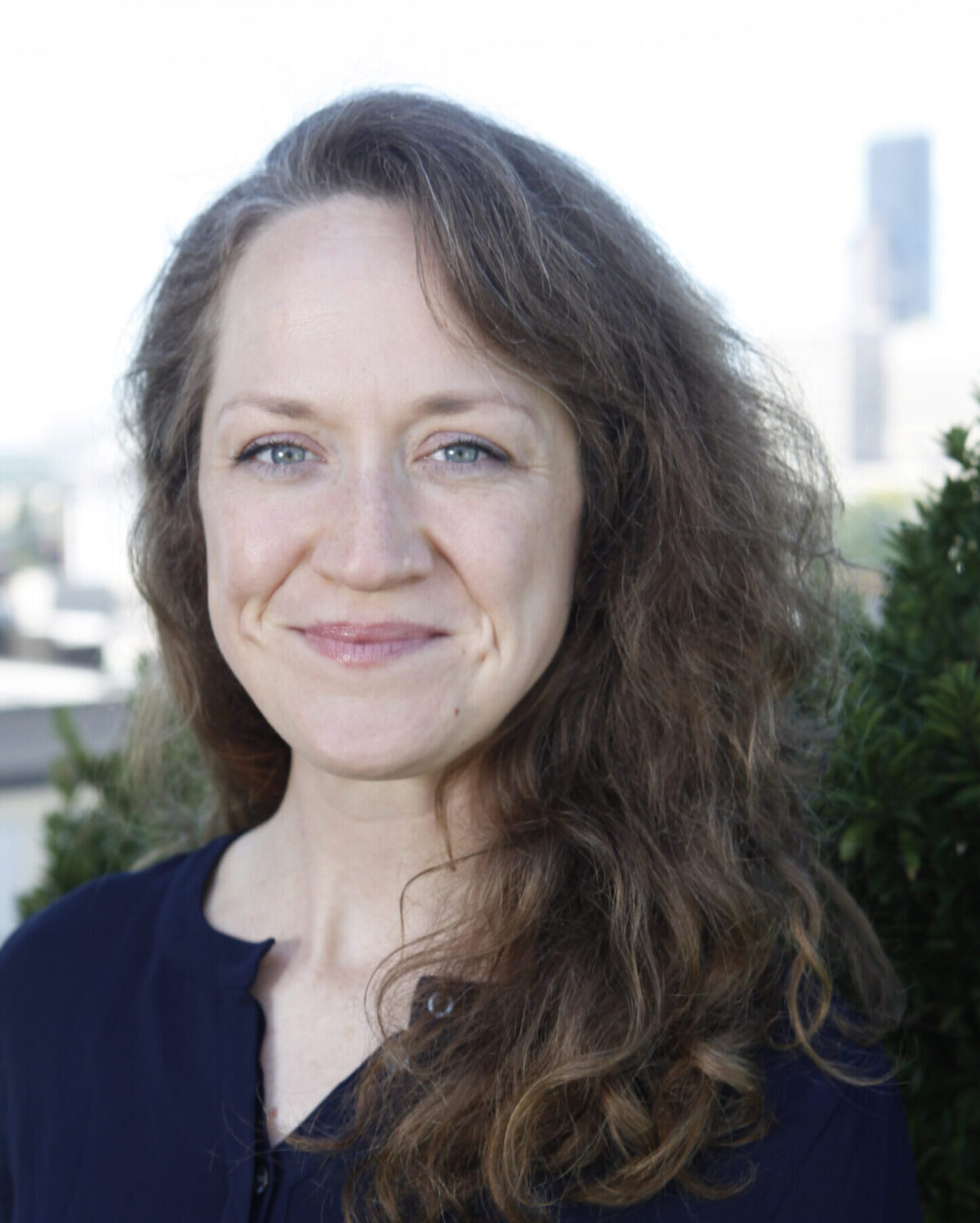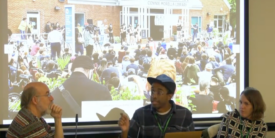Alan
One thing that Cascadia is remarkably short on, considering its wealth and leadership in research and technology, is elite colleges and universities. The geography of selective institutions of higher education has barely changed in decades, with most Ivy League-level schools concentrated in the, well, Ivy League, as David Leonhardt explains. One reason is that founding a new college is astronomically expensive, and none of the Northwest’s billionaires seem interested. Another reason may be that those committed to dramatic new investments in higher education may now be focusing on how information technology could open up higher ed entirely, as Kevin Carey argued in September. Bill Gates, for example, is a big fan and supporter of Khan Academy, the free compilation of more than 4,000 superb but entirely homespun short lessons in everything from math to history. Initially, Khan Academy was the handiwork of one volunteer in his spare time: Salman Khan. (Here is Khan at TED. Bill Gates, his biggest benefactor, joins the video at 16:30.) During high school, my kids were among the million students who use Khan Academy monthly to supplement their learning. Khan Academy does not focus on higher education, but its offerings and especially its model are relevant to all levels of education.
Sightline Fellow Valerie Tarico has a poignant and insightful piece in Crosscut on end-of-life decisions and the expanding reach of Catholic health-care institutions in the Northwest.
As I sat with my sister in intensive care one night, she seemed conscious, and I said, “Katha, we just want for you whatever you want for yourself. If you want to try again to live, we want that too. If 40 years of mental illness has worn you down to the point that you’re just ready to be done, we understand.” She gave no indication that she heard me, but a nurse who was working not far from her bed did. As I stood to leave some time later he approached me and said—loud enough for Katha to hear if she could hear anything—“You know your sister will go to hell if she dies now.”
On a lighter note: Electronic Arts, the video game maker with operations in Burnaby and Vancouver, BC, responded with perfect pitch to an internet poll that ranked it the absolute worst company.
In Cascadian artist trivia, I learned this week—three years after it became true—that Allie Brosh, the brilliant author/illustrator of Hyperbole and a Half lives in Bend, Oregon. Yep, we get to claim her as Cascadian! I celebrated by re-reading my favorite of her oeuvre, Pie Versus Cake: A Scientific Approach.
And finally, Sightline guest researcher Vince Houmes spoke to the Seattle City Council this week about his research for Sightline about overbearing Cascadian taxi rules. He argued that limiting taxi numbers to the point where medallions sell for hundreds of thousands of dollars is preposterous and defeats the tremendous sustainability potential of taxis for supporting car-lite living. You can watch Vince’s brief synopsis of our case starting at 63:30. The council is studying taxi regulation in the context of the growth in Seattle of for-hire car service, limousine service, peer-to-peer car-sharing, Car2Go, and the explosion of new ride-selling smart-phone aps such as Uber, Sidecar, and Lyft. When transportation is purchased by the ride, rather than by the vehicle, magic happens for car-lite living. Taxi rules are one of the key hidden barriers to sustainability.
Serena
“The drug war is a holocaust in slow motion.” That’s the intimidatingly drug-war-knowledgeable creator of The Wire, David Simon, one of the experts interviewed in “The House I Live In,” a documentary I stayed up late to watch on PBS’s Independent Lens Monday night. The film, produced by a star team including Danny Glover, Russell Simmons, Brad Pitt, and John Legend, documents America’s longest-running war: 40 years, over 45 million arrests, $1 trillion in government spending, and the US’s standing as the largest jailer in the world. To say nothing of its implications on the poor abroad—and goodness, there’s only too much to say there—the domestic impacts of the drug war on low-income communities and communities of color are unconscionable. Mandatory watching.
Nicole
Why are foods so “crazy” or “loco” these days? Here at the office, we have ongoing conversations around nutrition, public health, and the limits of willpower. It looks like we’re not the only ones, but this isn’t quite what I’d envisioned:
“People like to balance virtue and vice,” says Chintagunta. “They’ll say, ‘During the week, I was a good person. I ate my lettuce, I ate my salad. Now it’s the weekend, and I want to cut loose a little bit. If I try something, I want to try something a little bit crazy.”
While digging through automobile ownership stats and public transit annual reports for a project I did a few years ago, I realized that the metropolitan history of Seattle is in many ways a story about the rise of the automobile. A fascinating podcast from 99% Invisible tells us how the automobile went from being a modern Moloch to king of the road.
Clark
The minimum wage machine.
Appearance, politics, and gender: literally any comment, good, bad, or neutral, about a female political candidate’s appearance reduces her support:
[T]he Name It, Change It campaign released a survey [that pitted] Jane Smith and Dan Jones …against each other in a race for Congress. Both have similar backgrounds, and after reading their bios the survey respondents prefer Jane slightly, 49-48.
Then they read a second story. In one version of the story, there’s no physical description of either candidate, and Jane’s lead stays pretty much the same. In a second version, there’s a neutral description of Jane’s appearance. Suddenly she’s 5 points behind Dan. In a third version, there’s a positive description of her appearance. Now she’s 13 points behind Dan. A fourth version that contains a negative description has about the same effect.
It doesn’t appear that they tested reactions to comments about a male candidate’s appearance. And there are certainly male politicians whose appearance gets mentioned quite a bit (paging Chris Christie and Scott Brown). Still, I suspect that society’s focus on appearance is a real problem for a woman running for office.
Eric
Jonathan Martin puts into words my generation’s anxiety about finances and retirement. My working life seems to have been defined by the following sequence of events: the tech bubble; the housing bubble; the great recession; and forehead-smackingly stupid ideas to walk back social security benefits for younger workers. Of course that’s paired with skyrocketing costs for fuel, college tuition, and more; plus a stock market that hasn’t made inflation-adjusted progress in over a decade.
At E Magazine, This Is Your Ocean On Acid is another alarming look at the threat of ocean acidification.









Sophia Katt
No one else on the entire interweb but you is finding the EA response to Consumerist “pitch perfect”. The rest of us are not a bit surprised that a company that routinely ignores its customers’ wishes, treats them like dirt, and whines about anti-gay trolling conspiracies when confronted with its bad behavior is getting a well-deserved comeuppance.
Lee Colleton
I’d be curious to hear whatever happened to Avego and their go520 state-funded ridesharing program. There are similarities to SideCar and (to a lesser degree) Lyft. The Avego app recently received a revision allowing closed rider groups which may be seeing use but the company is unresponsive to inquiries about their ridership in our area.
Alan Durning
Good question, Lee. I’m curious, too, but I have no information.